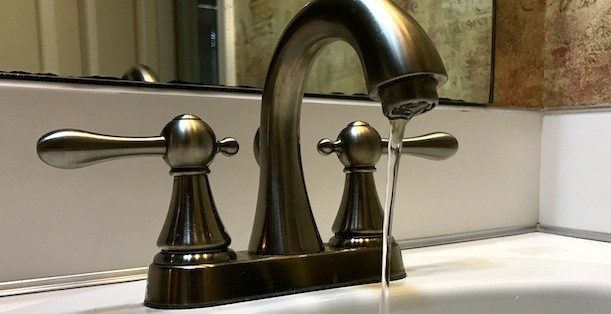Fort Smith Board pushes back on billing plan with water and sewer leaks
by February 8, 2022 9:19 pm 2,173 views

A proposed new standard operating procedure for leak adjustments through the Fort Smith Utilities Department was shot down during a Fort Smith Board of Directors study session Tuesday night (Feb. 8).
Utilities Director Lance McAvoy proposed a new adjustment procedure that would allow residential and commercial customers in good standing to receive adjustments for leaks inside and outside the building. In the event of a leak, water usage over the seasonal/monthly average would be billed at the lowest tier and wastewater over the seasonal/monthly average would be billed at 50%. Adjustments would be eligible for two months, but customers could only have one adjustment over a 12-month period.
Customers would have to submit an application for the adjustment, which would be available on the website, and show proof of having the leak repaired. The SOP was set to go into effect March 1.
“To recap the history behind leak and bill adjustments, until 2020 there was no written, approved leak adjustment procedure for the employees to follow. Over a period of time, staff adopted an unofficial adjustment procedure with no written policy or oversight. At times this would allow one, 100% adjustment on water and sewer, or two, 50% water and 100% sewer adjustments for leaks in a 12 month period,” McAvoy said in a memo.
The procedure for water leak bill adjustments states, “The City of Fort Smith will allow two leak adjustments per six (6) month period for a water leak that occurs where the water does not leak into a toilet, sink, or drain that enters the sewer system. A meter service is eligible for a sewer charge credit associated with a water leak for not more than two (2) consecutive months (two (2) bills) if the leak occurs when the customer is not on winter average. If the leak occurs during a period when winter averaging is not in effect, credits will be based on the average prior six (6) month period for the meter service’s usage. Customers must provide a copy of written proof for each leak repair, such as a plumber’s receipt or store receipt, to be considered for a leak adjustment. Leaking irrigation services are not eligible for a water leak adjustment as there are no associated sewer changes with irrigation accounts.”
The proposed SOP also would allow for an unexplained usage hike adjustment in single family residents where the user experienced an unusual usage hike in one month without a leak or explanation. That adjustment could be used once in a 24-month period. It also would allow for a meter exchange adjustment. Neither of those adjustments are now allowed, McAvoy said.
Several directors voiced concerns over the policy stating that homeowners could still be charged much more than they expected or could afford if they experienced a leak.
“I don’t think it is fair to charge them for water they did not use, especially when they cannot afford it,” said Director Lavon Morton. “We cannot make money on the backs of people (in the city) who can least afford it.”
Morton said administrators need to develop a plan that would allow for the charge in the event of leak to only be the three-month average with perhaps a small amount extra. He also said there needed to be the option for the adjustment to go over three billing periods because some homeowners don’t find out right away that they have a leak and getting a plumber is no easy task.
McAvoy said his department had researched what cities across the country do for leak adjustments and noted the proposed adjustment procedure is more forgiving than most in the area.
“It provides safeguards for both customer and the city,” he said. “It is objective and justly treats all customers the same.”
Director George Catsavis said he didn’t care what any other city in the country did, he only wanted what was best for the people of Fort Smith and agreed with Morton on the changes that needed to be made. Director Kevin Settle also noted that residents needed to be able to inform the city they were filling a swimming pool, so the extra water usage needed for that would not be charged in sewer rates.
In the end, the board decided that the matter needed to be set by the board rather than left as an administrative procedure. The board agreed to put the matter on the agenda as a resolution in March.
